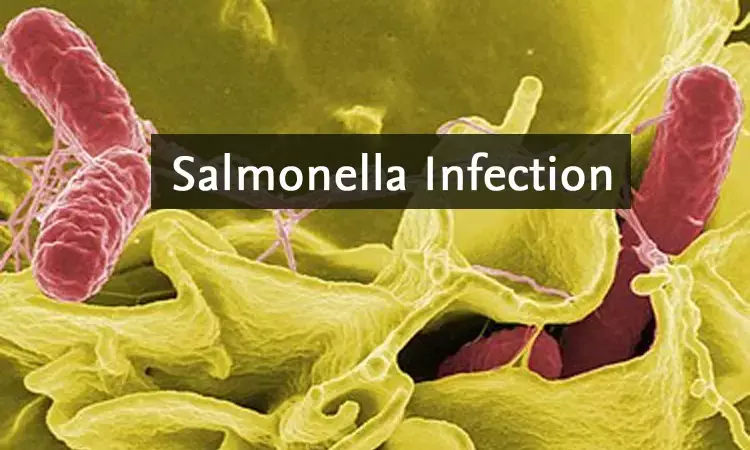- Home
- Medical news & Guidelines
- Anesthesiology
- Cardiology and CTVS
- Critical Care
- Dentistry
- Dermatology
- Diabetes and Endocrinology
- ENT
- Gastroenterology
- Medicine
- Nephrology
- Neurology
- Obstretics-Gynaecology
- Oncology
- Ophthalmology
- Orthopaedics
- Pediatrics-Neonatology
- Psychiatry
- Pulmonology
- Radiology
- Surgery
- Urology
- Laboratory Medicine
- Diet
- Nursing
- Paramedical
- Physiotherapy
- Health news
- Fact Check
- Bone Health Fact Check
- Brain Health Fact Check
- Cancer Related Fact Check
- Child Care Fact Check
- Dental and oral health fact check
- Diabetes and metabolic health fact check
- Diet and Nutrition Fact Check
- Eye and ENT Care Fact Check
- Fitness fact check
- Gut health fact check
- Heart health fact check
- Kidney health fact check
- Medical education fact check
- Men's health fact check
- Respiratory fact check
- Skin and hair care fact check
- Vaccine and Immunization fact check
- Women's health fact check
- AYUSH
- State News
- Andaman and Nicobar Islands
- Andhra Pradesh
- Arunachal Pradesh
- Assam
- Bihar
- Chandigarh
- Chattisgarh
- Dadra and Nagar Haveli
- Daman and Diu
- Delhi
- Goa
- Gujarat
- Haryana
- Himachal Pradesh
- Jammu & Kashmir
- Jharkhand
- Karnataka
- Kerala
- Ladakh
- Lakshadweep
- Madhya Pradesh
- Maharashtra
- Manipur
- Meghalaya
- Mizoram
- Nagaland
- Odisha
- Puducherry
- Punjab
- Rajasthan
- Sikkim
- Tamil Nadu
- Telangana
- Tripura
- Uttar Pradesh
- Uttrakhand
- West Bengal
- Medical Education
- Industry
Dephostatinone and colistin combo may help fight against Salmonella

Natural product dephostatin is an effective partner for the antibiotic colistin in treating infections caused by the bacteria Salmonella
Hamilton, ON - McMaster University researchers have found that a natural product called dephostatin is an effective partner for the antibiotic colistin in treating infections caused by the bacteria Salmonella.
Colistin is considered a last-resort antibiotic for multidrug-resistant bacterial infections due its toxic effect on the body, which has limited its use in medicine. However, when paired together, dephostatin allowed for drastically lower concentrations of colistin in a treatment regimen for Salmonella infection in mice that maintained the antibiotic's effectiveness.
The study details are published in Cell Chemical Biology.
"The rise of antibiotic resistance has ushered in the post-antibiotic age, and alternatives to antibiotics are urgently required," said Caressa Tsai, first author of the study and a PhD student in biochemistry and biomedical sciences in the Coombes lab at McMaster. "Solving the antibiotic resistance crisis will require us to shift away from the traditional view of antibiotic discovery."
The World Health Organization has classified antibiotic-resistant Salmonella, which can cause infection from eating contaminated foods, as a high-priority pathogen.
In their study, researchers found that dephostatin does not kill Salmonella or stop it from growing. Instead, dephostatin prevents Salmonella from causing infection in two ways: It blocks its ability to resist being killed by immune cells and it enhances its sensitivity to colistin.
While the initial findings were done using a method of experimentation called high-throughput screening, the researchers were excited to find that co-administering dephostatin and colistin in mice with a lethal Salmonella infection significantly prolonged animal survival and used a lower concentration of colistin than is normally required for treatment, thereby reducing its toxic effect.
By the numbers, treatment with colistin alone extended survival of almost 88 per cent of mice to approximately five days post infection and 25 per cent of mice survived to the end of the experiment. However, more than 62 per cent of mice treated with both dephostatin and colistin survived the infection, indicating a significant improvement over therapy with one antibiotic.
"Traditional antibiotics all work in a similar way - they clear infections by killing bacteria," said Tsai. "Here, we were interested in a different approach - keeping bacteria alive, but chemically inactivating important pathways to prevent them from causing infection."
Researchers are continuing their research to understand how dephostatin works against Salmonella. Their ongoing work will explore the activity of dephostatin alone and in combination therapies during the treatment of infected animals.
"Dephostatin appears to knock out two important regulatory pathways that control Salmonella virulence and antibiotic resistance mechanisms," said Coombes, corresponding author and a professor in the Department of Biochemistry and Biomedical Sciences at McMaster University. He holds the Canada Research Chair in Infectious Disease Pathogenesis.
"This research highlights the opportunities in taking a different approach than traditional antibiotic discovery and is enabling new drug combinations to emerge."
Hina Zahid Joined Medical Dialogue in 2017 with a passion to work as a Reporter. She coordinates with various national and international journals and association and covers all the stories related to Medical guidelines, Medical Journals, rare medical surgeries as well as all the updates in the medical field. Email: editorial@medicaldialogues.in. Contact no. 011-43720751
Dr Kamal Kant Kohli-MBBS, DTCD- a chest specialist with more than 30 years of practice and a flair for writing clinical articles, Dr Kamal Kant Kohli joined Medical Dialogues as a Chief Editor of Medical News. Besides writing articles, as an editor, he proofreads and verifies all the medical content published on Medical Dialogues including those coming from journals, studies,medical conferences,guidelines etc. Email: drkohli@medicaldialogues.in. Contact no. 011-43720751


